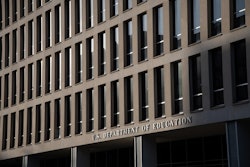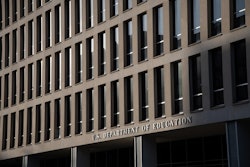Earning a college degree isn’t on the radar for many Asian-American and Pacific Islander families. Instead, youths work, often in the family business, or wind up unemployed. Higher education is seen as unaffordable and applying for financial aid, daunting.
Even in school, AAPI students may have a tough time. Data show this group suffers from high dropout rates in high school and low rates of college enrollment and graduation.
A group called APIACU—the Asian Pacific Islander American Association of Colleges and Universities—was formed recently to advocate for institutions serving this very diverse set of ethnicities. Some methods have been effective in helping AAPIs, and APIACU will, among other things, share useful information among its members, according to Mark Mitsui, chairman of the board of directors.
The idea of creating APIACU was rolled out earlier this year during a summit of the Asian and Pacific Islander American Scholarship Fund. APIACU became incorporated in the last few months. But “people across the country have been calling and e-mailing for quite a while now” about forming an advocacy group, said Mitsui, president of North Seattle Community College.
After some discussion, mostly among educators on the West Coast, “it finally started to jell,” says Dr. Gabriel Esteban, an APIACU founding board member and president of Seton Hall University. “We thought, ‘This is something really important, and we’ve got to do something about it.’”
Efforts to help AAPIs have been hampered by a lack of data—until now—and by the assumption that they are a “model minority” earning degrees from elite institutions, educators say.
In truth, half of AAPIs attend community colleges, and many of them don’t finish or go on to universities from there, data show.














